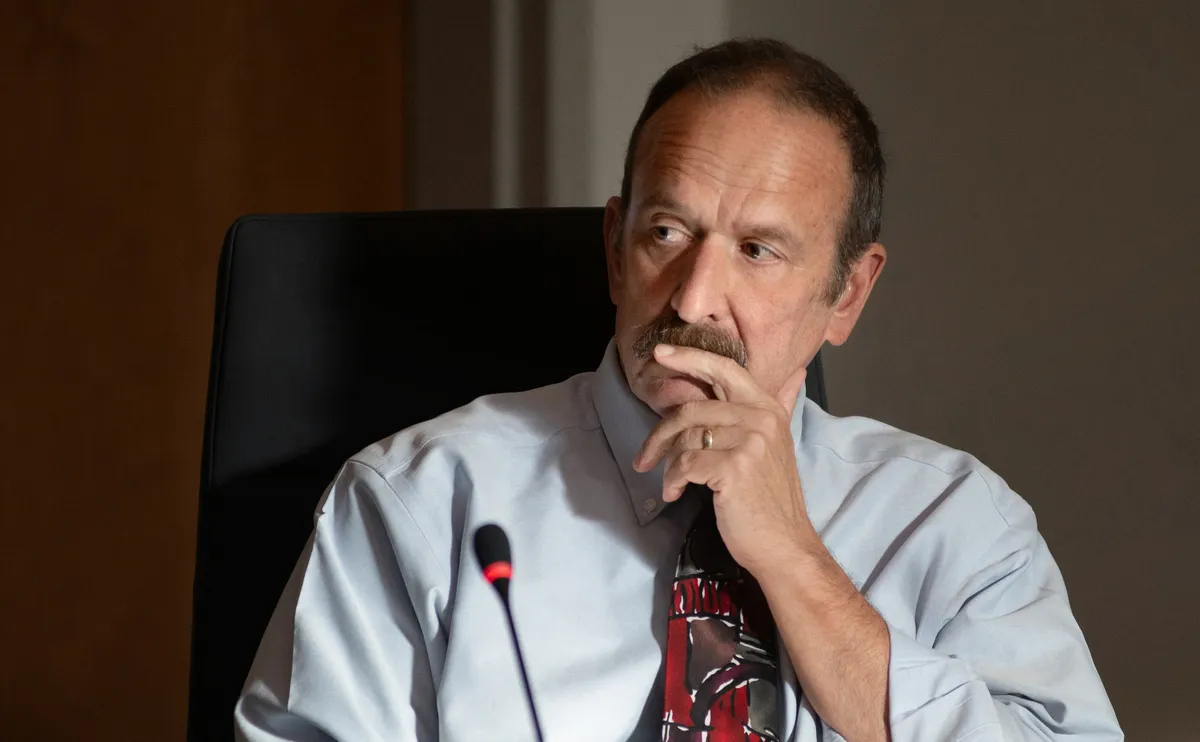
Bangor’s City Council will reconsider its policy allowing public comments during its meetings via Zoom following a spate of hateful attacks by commenters likely using fake names.
Three people who spoke at Wednesday’s meeting through Zoom without their cameras on were cut off from speaking after they swore or used slurs.
Multiple hateful comments have been made at other meetings this year.
City Council will discuss potential changes to the public comment policy in a future committee meeting, according to Council Chair Rick Fournier, although he wasn’t sure Thursday whether that discussion would happen next week or in November after three new councilors are elected.
The decision to revisit the policy comes during a particularly chaotic time for the council after the former chair abruptly resigned, citing attacks from members of the public, and some have worried that Bangor politics are becoming increasingly divisive.
One Zoom commenter using the name Anders Breivik, who is a Norwegian neo-Nazi terrorist and mass murderer, spread a false claim that the Bangor Mall had been sold to the Department of Homeland Security. He then named someone who had offered public comment in person earlier and called him a homophobic slur, at which point he was cut off by Fournier.
Two other speakers were cut off for swearing, including one person using the name Alex Jones, the far-right media personality and conspiracy theorist. The speaker made derogatory comments about immigrants, calling them “third world savages.” He was cut off after saying, “They don’t learn our f—king language. They don’t deserve to be here.”
The person also encouraged residents to vote for City Council candidate Richard Ward, who himself spoke twice at the meeting. Ward is well-known in Maine for his neo-Nazi rhetoric. He used a homophobic slur during a City Council meeting in July as part of a complaint about rainbow flags and sidewalks around the city.
Most of the public comments given both on Zoom and in person Wednesday were in response to a proposed resolve related to Immigrations and Customs Enforcement. The official statement, which did not pass, would have clarified the procedure Bangor would follow if it ever considered entering into an agreement with ICE.
Although Bangor’s public comment policy requires people to state their full name and whether they are a resident of Bangor, none of the three commenters who were eventually cut off said where they were from or were asked to do so.
The policy also states that comments related to support or opposition for any political candidate will be ruled out of order and that “Obscene, truly threatening, and overly repetitive remarks will be interrupted and removed, as will disruption and disorderly behavior that interferes with the orderly conduct of the meeting.”
It is up to the council chair to interject when a speaker says something inappropriate, at which point city staff can mute the speaker’s microphone on Zoom.
Councilor Susan Deane requested that the council change its policy Wednesday, saying multiple comments were inappropriate and the council should consider limiting who is allowed to speak on Zoom or stop allowing Zoom comments altogether.
“It’s absolutely absurd to allow this to continue. I am horrified at some of the things I heard. So, I would like us to look at this seriously,” she said.
A policy change could involve ending Zoom comments or screening people beforehand, Fournier said. He noted that he expects there will be pushback from people who prefer to offer comments remotely, but that the council should consider making changes.
“It’s easy to be rude and have foul language when you’re on the phone rather than being there in public, especially if someone isn’t giving their right name,” he said.
Bangor has encountered issues with inappropriate Zoom comments before. Multiple cities in Maine were subjected to “Zoom bombing” attacks in 2023, including one at a Bangor meeting on the anniversary of the Sept. 11, 2001, terrorist attacks, which the speaker falsely linked to a Jewish conspiracy.
Councilors considered changing the comment policy at the time but worried some residents would feel like the city wanted to prevent them from sharing legitimate questions and concerns.
Other communities that faced similar attacks took a stronger stance, including Rockland, which removed the option to attend council meetings via Zoom.